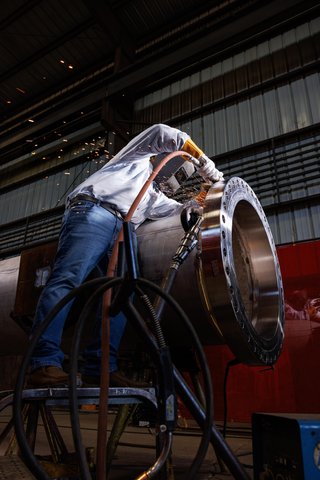
Along the Texas Gulf Coast, a major pharmaceutical manufacturer is racing to expand its production capacity in response to fast-rising market demand. But the construction of its new facility has run into unexpected setbacks, particularly around coordinating specialized teams and synchronizing installation timelines across disciplines.
Just a few hours away, a large-scale data center project is facing a nearly identical strain. Mechanical, electrical and civil contractors are working on tight schedules, yet integration challenges are slowing down progress and creating costly delays.

These two cases underscore a growing issue within highly technical, high-growth industries: how to deliver complex facilities without getting bogged down by the coordination burden of multiple vendors.
Traditional construction delivery models often rely on dividing responsibilities between numerous specialized contractors. While this allows technical expertise for each scope, it also introduces risks:
For pharmaceutical manufacturers operating under strict FDA requirements, even slight delays can jeopardize time-sensitive regulatory approvals or market launches. Data center developers face similar pressure as global cloud and AI demand surges. They must deliver infrastructure capable of near-perfect uptime, low latency and rapid deployment—without slipping timelines.
To solve these challenges, some owners are shifting away from fragmented contracting models and instead partnering with firms that deliver comprehensive services under one umbrella.
Turner Industries is one such provider. With more than six decades of experience and over 20,000 employees, the company has developed its "One Solution" model, designed to remove the friction of coordinating multiple vendors while still delivering specialty expertise at scale.
Turner’s EPC (Engineering, Procurement and Construction) relationships allow teams to work with engineers early in the process, reducing design conflicts and accelerating build schedules. Their offerings span:
This integrated method helps pharmaceutical firms avoid bottlenecks, minimize shutdown windows and maintain compliance while staying on track.
For data center developers, Turner covers the full lifecycle—from groundwork to mechanical and electrical systems. Services include:
By consolidating these scopes under one provider, owners reduce risk and accelerate commissioning.

Texas continues to emerge as a national hub for both pharmaceutical manufacturing and hyperscale data center development. Population growth, energy availability and supply chain proximity are fueling major capital investment across the state.
The companies most likely to sustain growth in this environment will be those that can deliver:
Turner and other large-scale industrial contractors are investing heavily in technology, training and integrated delivery models to stay ahead of this demand.
As construction requirements become more specialized and time-sensitive, the industry is trending toward single-source, turnkey approaches that streamline complexity. For pharmaceutical and data center owners in Texas, that model is increasingly viewed not as a luxury—but as a necessity.
The future belongs to firms that can deliver complex solutions with simplicity. For two of the state’s most critical industries, that future is already taking shape.
To learn more about Turner Industries’ solutions for data centers an
Originally reported by Turner Industries in Houston Business Journal.